Aurélienne Brauner, violoncelliste website
Aurélienne Brauner a été nommée super-soliste à l’Orchestre National de France en 2021.
Elle se produit sur scène en Europe, aux Etats-Unis et en Asie, notamment à la Philharmonie de Paris, au Théâtre du Châtelet, au Théâtre des Champs-Elysées, à l’Auditorium de Bordeaux, au Palais des Beaux- Arts de Bruxelles, au Suntory Hall de Tokyo, au Théâtre de Tunis, Forum Grimaldi à Monaco, Conservatoire Tchaïkovski et Philharmonie de Moscou, Palazzetto Bru Zane à Venise, ainsi que dans plusieurs festivals en France et à l’étranger (festival de musique de chambre d’Oslo, Journées Ravel à Montfort-l’Amaury, festival d’Aix-en-Provence, festival 1001 Notes, Flâneries Musicales de Reims, Abbaye de Royaumont, Château d’Örbyhus en Suède…).
Révélation Classique de l’Adami en 2007, Aurélienne Brauner se voit remettre en 2009 le prix de la Fondation Del Duca par l’Académie des Beaux-Arts pour récompenser le début de sa carrière musicale. Aux Pays- Bas, elle a été sélectionnée par le « International Holland Music Sessions » en tant que « New Masters on tour » pour un concert au Concertgebouw d’Amsterdam (2010-2011).
En soliste, elle a joué avec l’Orchestre National de Lille, l’Orchestre de la Philharmonie de Baden-Baden, l’Orchestre de Douai/Région Nord-Pas-de-Calais, l’Orchestre National Bordeaux-Aquitaine et l’Orchestre de chambre de Lyon dans les concertos de Lalo, Haydn, Tchaïkovski, Dvorák et le Double concerto de Brahms avec Alexandra Soumm…
En musique de chambre, on a pu l’entendre aux côtés de Patrice Fontanarosa, Paul Katz, Svetlin Roussev, François Salque, Jean-Guihen Queyras, Maxim Vengerov, Thierry Escaich, Sarah Nemtanu… Avec le Trio Gallien, composé de Tristan Liehr (violon) et d’Emmanuel Christien (piano), elle remporte en février 2018 le 3e prix du prestigieux concours de musique chambre « Franz Schubert und die Musik der Moderne » à Graz, et, en septembre de la même année, le 1er prix et le prix du public au 23e concours « Gaetano Zinetti » à Vérone.
En 2016, son enregistrement consacré aux œuvres de David Monrad Johansen pour le label SIMAX Classic en Norvège a été nommé aux Grammy norvégiens (Spellemanprisen).
Lorène de Ratuld, pianiste website
Au fil des concerts et des enregistrements, Lorène de Ratuld donne à entendre un vaste répertoire :
centré sur la période romantique et la musique française, il fait aussi la part belle aux compositeurs et compositrices méconnus, aux œuvres rares ou inédites et aux compositeurs d’aujourd’hui (N. Bacri, K. Beffa, S. Bortoli, P. Farago, N. Mondon, F. Mulsant).
Élève de Brigitte Engerer, elle reçoit une riche formation au CNSMD de Paris : après son prix de piano avec mention Très Bien à l’unanimité, elle se perfectionne auprès de Jean-François Heisser (cycle de perfectionnement piano), Christian Ivaldi (musique de chambre) et Anne Grappotte (accompagnement vocal).
Lauréate du Concours International Piano Seiler en 2003, elle obtient en 2004 plusieurs prix au Concours International Piano Campus, dont celui du magazine Classica-Répertoire qui publie son premier récital (CD « Découverte »). En 2005, elle reçoit le Prix Lucien Durosoir avec Geneviève Laurenceau et, en 2011, le Prix Pro Musicis.
En récital ou en musique de chambre, Lorène de Ratuld est l’invitée des festivals d’Auvers-sur-Oise, Piano à Auxerre, Matinales d’Arles, Serres d’Auteuil, Piano en Valois, Festival Berlioz, Festival de l’Epau, Festival 1001 Notes, Journées Ravel à Montfort-l’Amaury, Moments musicaux de Chalosse… et se produit également en Allemagne, Autriche, Belgique, Italie (Fondation Bru Zane), Roumanie, Suède et dans différents pays d’Afrique.
Outre son activité en duo avec Aurélienne Brauner, elle joue aux côtés du violoniste François Pineau-Benois, des chanteuses Roselyne Martel-Bonnal et Valérie Condoluci, et des Solistes de l’Orchestre de Chambre de Paris et de l’Orchestre de Bordeaux-Aquitaine. Attirée par le théâtre, elle participe à plusieurs spectacles du chanteur et comédien Mario Hacquard.
Sa discographie reflète ses choix artistiques et son engagement auprès de différents artistes et labels : Récital Dutilleux/Beffa (« Coup de Cœur » de l’Académie Charles Cros), Œuvre pour violon et piano de L. Durosoir (« Gramophone recommends »), Sonates pour violoncelle et piano de C. Franck, G. Fauré et L. Vierne avec Aurélienne Brauner. Récemment ont paru Piano Works de F. Mulsant (« 5 Étoiles » de Classica) et l’intégrale de L’Œuvre pour piano de J. de La Presle (« 5 Diapasons »), inédite au disque.

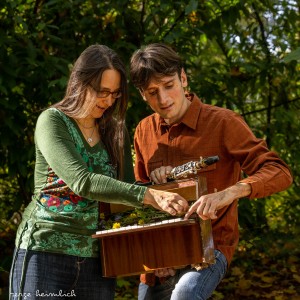


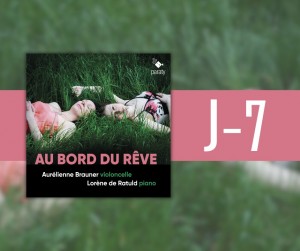

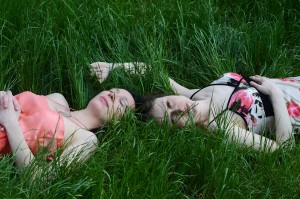

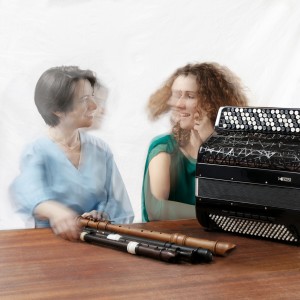

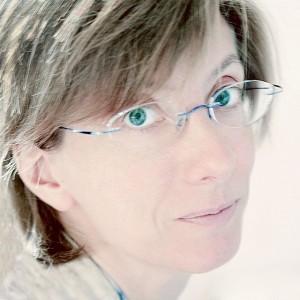





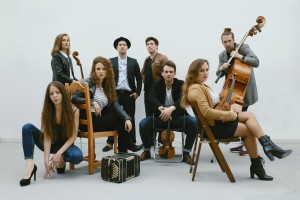

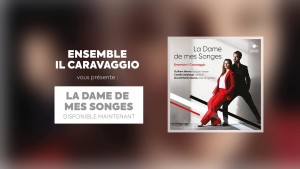

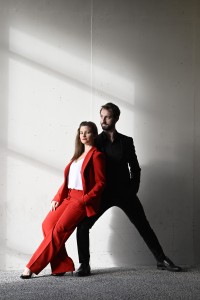

Recent Comments